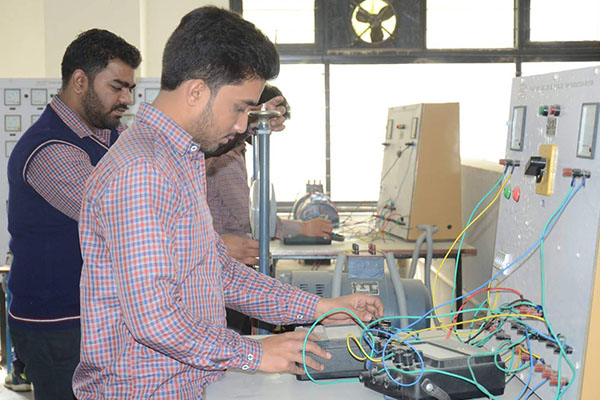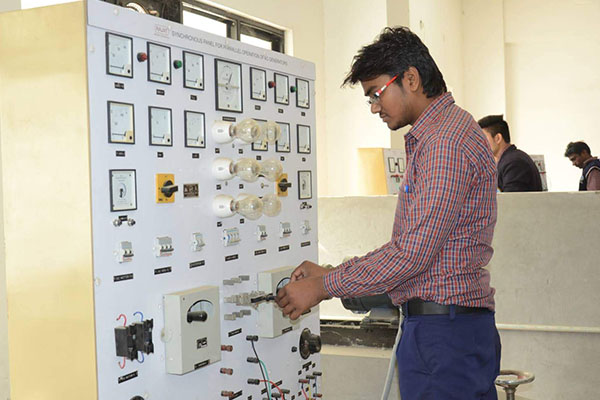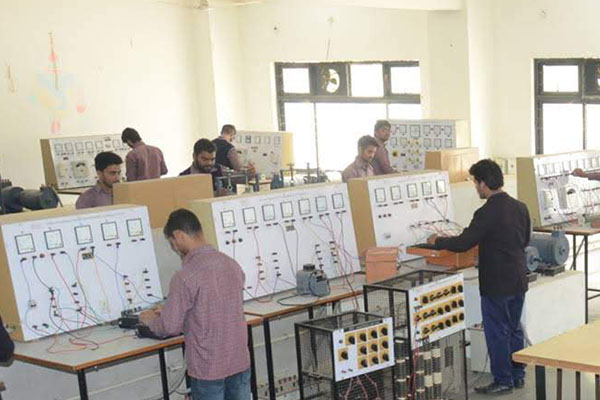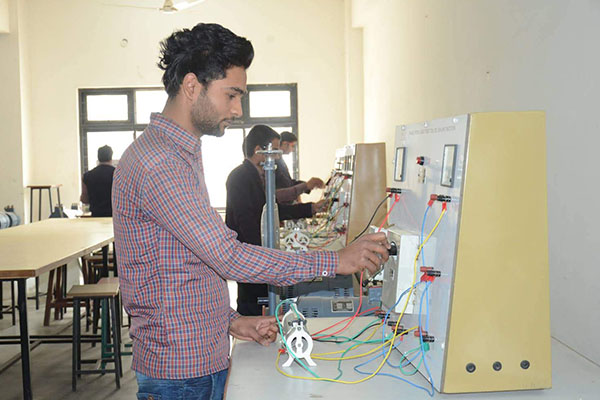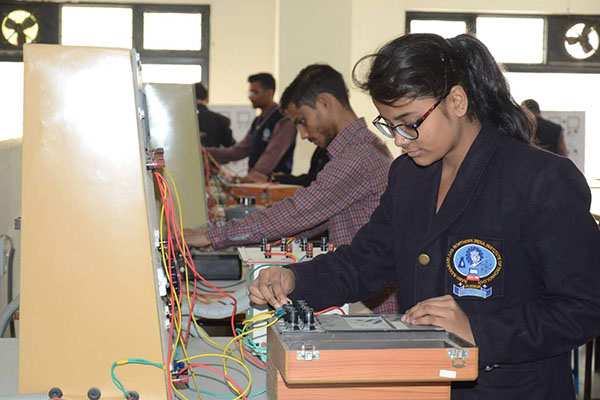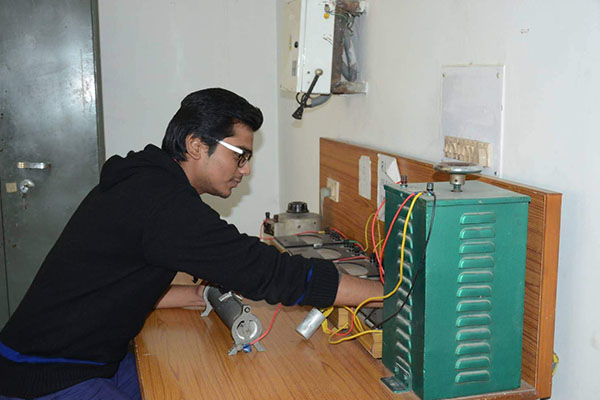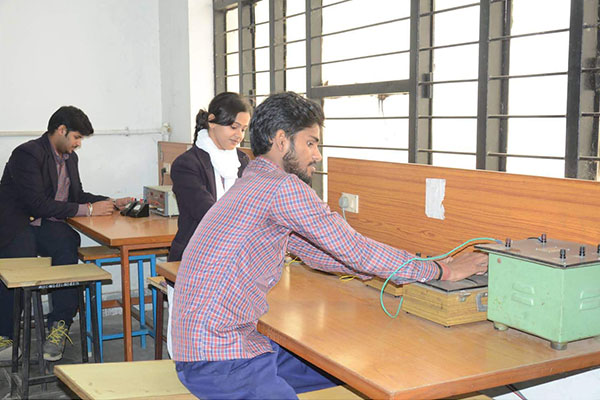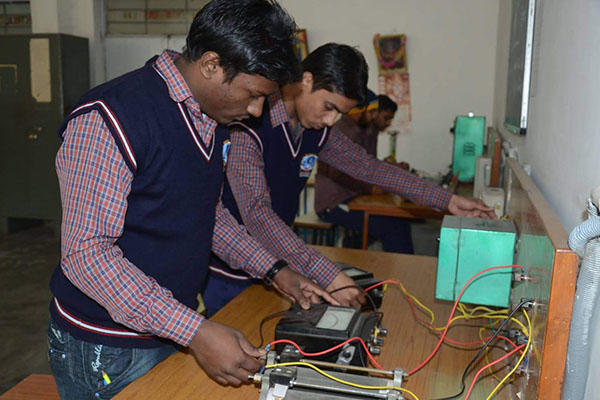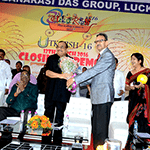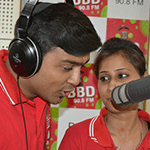Department of Electrical Engineering
Programme Educational Objectives (PEOs)
The Program Educational Objectives of the U.G. program in the Department of Electrical Engineering are:
- PEO1: To provide students with a sound foundation in the mathematical, scientific and engineering fundamentals which are essential in making successful careers inindustry/research/higher education and evolve as professionally responsible individuals through global and rigorous education.
- PEO2 To embed ethical attitude, effective skills in communication, management, teamwork, leadership qualities and competence to acquire excellence in all spheres of life.
- PEO3 Inculcate attitude to adopt new technologies as well as engage in ongoing learning , professional development through self-study and continuous learning in Electrical Engineering and also in other allied fields.
- PEO4 To foster amongst the students, professional, moral and ethical attitude and instil a sense of responsibility toward the society and environment.
- PEO5Create an academic environment to stimulate desire & joy for learning, endeavour for excellence and perception of life-long learning.
Programme Outcomes (POs)
- PO1 Engineering Knowledge: Apply the knowledge of mathematics, science , engineering fundamentals and an engineering specialization to the solution of complex engineering problems.
- PO2 Problem Analysis: Identify , formulate , review literature and analyze complex engineering problems reaching substantiated conclusions using first principles of mathematics , natural science and engineering sciences.
- PO3 Design / Development of Solutions: Design solutions for complex engineering problems and design system components or processes that meet the specified needs with appropriate consideration for the public health and safety and the cultural , societal and environmental considerations.
- PO4 Conduct Investigations of Complex problems: Use research based knowledge and research methods including design of experiments, analysis and interpretation of data, and synthesis of the information to provide valid conclusions.
- PO5Modern Tool Usage: Create , Select , and apply appropriate techniques , resources and modern engineering and IT tools including prediction and modeling to complex engineering activities with an understanding of the limitations.
- PO6The Engineer and Society: Apply reasoning informed by the contextual knowledge to assess societal , health , safety , legal and cultural issues and the consequent responsibilities relevant to the professional engineering practice .
- PO7Environment and Sustainability: Understand the impact of the professional engineering solutions in societal and environmental context and demonstrate the knowledge of , and need for sustainable development .
- PO8Ethics:Apply ethical principles and commit to professional ethics and responsibilities and norms of the engineering practice .
- PO9Individual and Team Work: Function effectively as an individual and as a member or leader in diverse teams and in multidisciplinary settings.
- PO10Communication:Communicate effectively on complex engineering activities with the engineering community and with the society at large , such as , being able to comprehend and write effective reports and design documentation , make effective presentations, and give and receive clear instructions.
- PO11Project Management and Finance: Demonstrate knowledge and understanding of the engineering and management principles and apply these to one’s own work , as a member and leader in a team , to manage projects and in multidisciplinary environments.
- PO12 Life Long Learning: Recognize the need for , and have the preparation and ability to engage in independent and life long learning in the broadcast of technological change .
Programme Specific Outcomes (PSOs)
- PSO1: Ability to design and solve problems in the field of Electrical Engineering by applying the knowledge acquired from Circuit & Field theory, Control theory, Electric Power Systems, Electronics & other allied topics.
- PSO2 Skills to explore the state-of-the-art technologies in power systems monitoring, protection, operation and control, renewable energy engineering, utilization of energy and energy management systems to address efficiently and ethically the current and future energy issues.
Quick Links
Apply Now
Error: Contact form not found.
EE Labs
- Basic Electrical Lab
- Microprocessor Lab
- Electronics Lab
- Communication Lab
- Digital Electronics Lab
- Analog Electronics Lab
- Control System Lab
- Instrumentation Lab
- Computer Lab
- Networks Lab
- Power System Lab
- Power Electronics Lab
- Project Lab
- Machine Lab
- MATLAB
- P-Spice Lab




